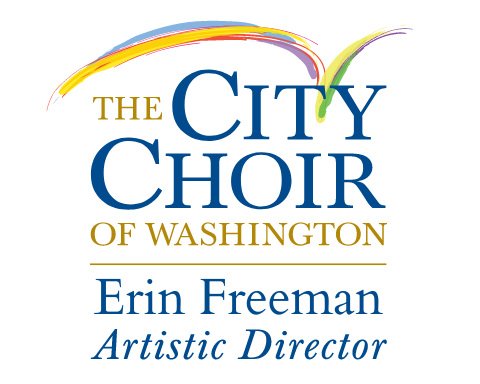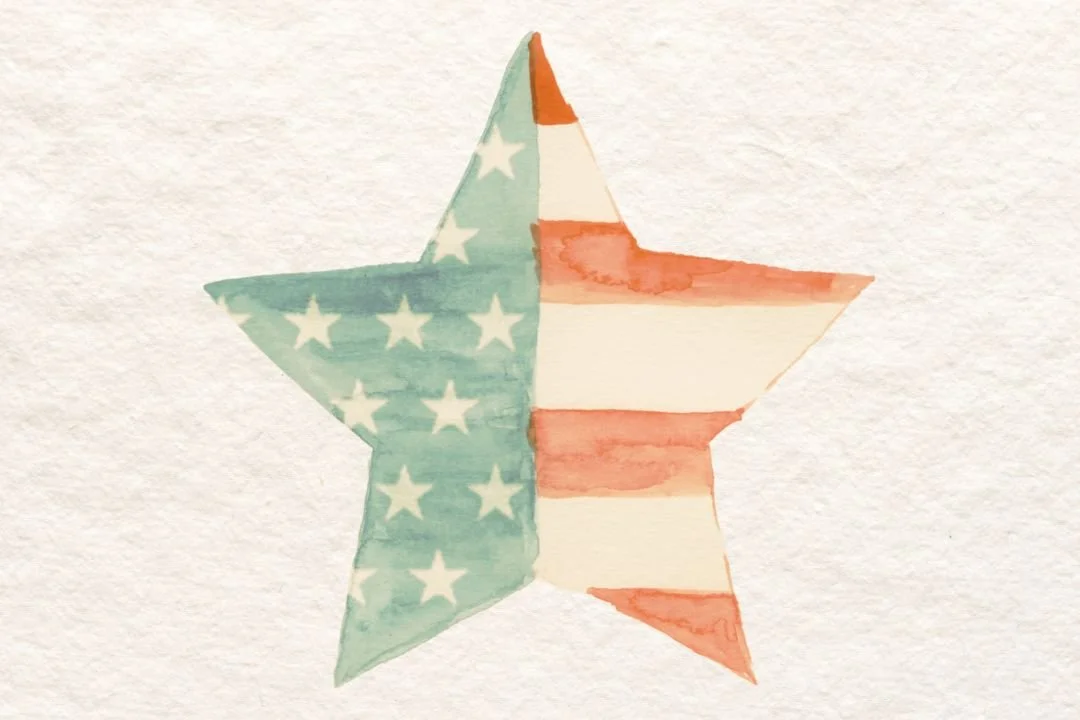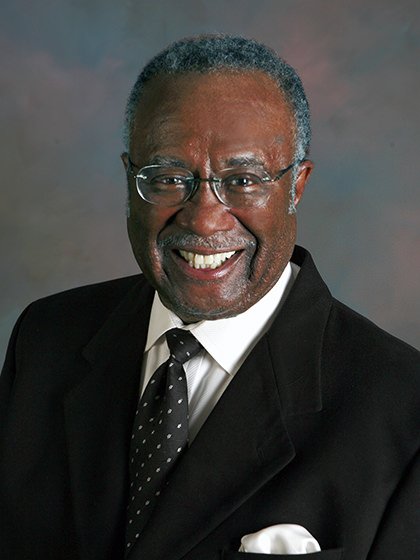100 Years of Great American Songwriting
There would be no great American song without great American songwriters! Explore our concert program and the composers who tell our stories through the power of music and lyrics. To learn more about a composer or song, please click on an image below.
Dede Duson (b. 1938)
Of Love
Dede Duson’s “Of Love” is one of Erin Freeman’s favorites. She says, “it’s basically a musical invitation for us to turn off our phones, relax, and find the love all around us.”
Duson is a Texan with music degrees from the University of Texas at Austin and the University of Houston. She taught piano and theory for many years, served as a church organist, and accompanied various groups including the Houston Symphony Chorus, Texas All-state Choir, and Mesquite Civic Chorus.
Robert Shafer (b. 1946)
Agnus Dei
In our set of songs featuring Washington, DC composers, we had to showcase a piece by City Choir’s Artistic Director Emeritus, Robert Shafer. City Choir has sung many of Shafer’s compositions over the years, but his Agnus Dei, written in honor of Gustav Mahler’s centennial years (2010 and 2011), is new to us and our audience.
Shafer, a Grammy-winning conductor in Washington, DC for more than 55 years, is also an accomplished composer, having studied with the famed Nadia Boulanger.
Moses Hogan (1957-2003)
I’m Gonna Sing ‘til the Spirit Moves in My Heart
Moses Hogan was an accomplished pianist, composer, and arranger, and this piece highlights his distinctive use of harmonic texture and complex rhythms, all while capturing the passion and immediacy of the Spiritual.
Hogan was educated at Oberlin Conservatory of Music and became best known for his brilliant arrangements of spirituals. He founded the Moses Hogan Chorale and Moses Hogan Singers.
William L. Dawson (1899-1990)
Ain-a That Good News
William L. Dawson studied music at Tuskegee University; he later founded and headed that institution’s School of Music. Dawson wrote his Negro Folk Symphony in 1934; it was premiered to much acclaim and has been revived occasionally throughout the years, most recently for a number of performances between 2020-2024. He is also well known for his orchestral arrangements, and arrangements of spirituals.
“Ain-a That Good News” is one of Dawson’s most popular arrangements—although this is the first time that the City Choir of Washington has performed it, our engagement chorus, the City Singers, has sung it often in past years.
Alice Parker (1925-2023)
Hark, I Hear the Harps Eternal
Alice Parker, a native of Boston, Mass., was educated at the New England Conservatory, Smith College, and Juilliard. As a young college graduate, Parker met Robert Shaw at Tanglewood in 1947, and began a long and fruitful collaboration with him. Parker is probably best known for her arrangements for the Robert Shaw Chorale, but she is also the composer of operas, cantatas, song cycles, works for chorus and orchestra, and original hymns, in addition to many arrangements of traditional spirituals and hymns.
It is hard to imagine an American a cappella concert that doesn’t include one of the grande dame of choral music’s arrangements, and City Choir’s 100 Years of Great American Song is no exception!
Stephen Paulus (1949-2014)
The Road Home
The Road Home was sung at the state funeral of President Jimmy Carter at the Washington National Cathedral on Jan. 9, 2025; City Choir is pleased to present this moving new classic on our “100 Years of Great American Song” concert.
Stephen Paulus was a prolific American composer of classical music. He wrote over 600 works for chorus, opera, orchestra, chamber ensemble, solo voice, concert band, piano, and organ, receiving premieres and performances throughout the world as well as a Grammy nomination for Best Contemporary Classical Composition in 2015.
James Weldon Johnson (1871-1938)
Lift Ev’ry Voice and Sing
James Weldon Johnson was a tireless civil rights activist, diplomat, lawyer, and Executive Secretary of the NAACP. During his tenure, Weldon Johnson lived here in Washington, DC, in Logan Circle.
He wrote the poem “Lift Ev’ry Voice and Sing” in 1899; the music was written by J. Rosamond Johnson, Weldon Johnson’s younger brother and frequent collaborator—they had a successful run as Broadway songwriters at the height of the Harlem Renaissance. With it’s stirring melody and lyrics of resilience and hope, “Lift Ev’ry Voice” became unofficially known as the “Negro National Anthem,” a title it still bears today.
Ysaÿe Barnwell (b. 1946)
Wanting Memories
Originally from New York City, Ysaye Barnwell has called Washington, DC home for many decades. She is a prolific singer, composer, conductor, educator, and more. Barnwell was a member of the a cappella ensemble Sweet Honey in the Rock from 1979-2013.
Erin Freeman notes that “‘Wanting Memories’ takes on the form of a traditional additive, improvised piece, although it is fully composed. We’ve been having a blast learning all of the syncopations and making them feel natural!”
Cole Porter (1891-1964)
What Is This Thing Called Love?
Cole Porter wrote “What Is This Thing Called Love?” in 1929 for the musical Wake Up and Dream. The show never reached the heights of Porter’s smash hits Kiss Me, Kate or Anything Goes, but “What Is This Thing Called Love?” endures as one of the greatest jazz standards ever written. It has been recorded by luminaries from Ella Fitzgerald to Artie Shaw to Billie Holiday to Frank Sinatra to Barbra Streisand. Its moody feeling and rich dissonances are brought out in this a cappella choral arrangement by Monica Pabelonio.
Dolly Parton (b. 1946)
Light of a Clear Blue Morning
Country Music legend Dolly Parton needs no introduction. She is well-known for her songwriting, singing, acting, and philanthropy. “Light of a Clear Blue Morning” was written and recorded by Dolly Parton in 1977; this choral arrangement by acclaimed composer and conductor Craig Hella Johnson has brought a lovely new choral aesthetic to this uplifting work.
Dominick DiOrio (b. 1984)
You Do Not Walk Alone
Erin Freeman says about this song, “DiOrio builds up some of the most delicious crunch chords - chords that will sound truly powerful with our large symphonic chorus! The piece toggles between those lush, disonant moments and pure, unision and tonal moments that he labels ‘hushed’”
Dominick DiOrio is an energetic conductor and composer who has won widespread acclaim for his contributions to American music. He holds appointments at the Indiana University Jacobs School of Music, and also serves as the fourteenth artistic director and conductor of the Mendelssohn Chorus of Philadelphia, where he regularly prepares the chorus to sing with The Philadelphia Orchestra.
Aaron Copland (1900-1990)
Sing Ye Praises to our King
This charming early work by Aaron Copland, part of his Four Motets, was written in 1921 when the composer was studying with Nadia Boulanger in Paris.
Copland went on to become known as the “Dean of American Composers” and is famous for his celebration of America in song through such works as Appalachian Spring, Billy the Kid, Rodeo, Fanfare for the Common Man, and many more. As a composer for voice, he is best known for his opera The Tender Land, his oratorio, In the Beginning, and his settings of “Old American Songs” (which were performed by City Choir in June 2023).
Duke Ellington (1899-1974)
Come Sunday
Edward Kennedy “Duke” Ellington is one of Washington, DC’s most famous sons. Born into a musical family, Ellington was a multi-talented pianist, conductor, composer, and band leader; he is best known as one of the most important jazz musicians, but considered his music to be “beyond category” and part of American music.
Duke Ellington’s iconic song “Come Sunday,” originally made famous by Mahalia Jackson, features jazzy harmonies and a text meant to inspire and offer hope. Erin Freeman says, “My favorite part [of the song] is this line: “Please look down and see my people through”—set by Ellington in a descending line—as if from heaven!”
George Gershwin (1898-1937)
Embraceable You
George and Ira Gershwin wrote “Embraceable You” for an unpublished 1928 operetta. The song was published in 1930 and recorded by Ginger Rogers (with Fred Astaire dancing) and has remained a bedrock of the American Songbook ever since. It has been recorded by Ella Fitzgerald, Judy Garland, Bing Crosby, Nat King Cole, Frank Sinatra, Charlie Parker, Ornette Coleman, Johnny Mathis, Herbie Hancock, and Idina Menzel, among many others.
"Shenandoah"
Shenandoah, arr. James Erb
All who live in the greater Washington, DC area have a special relationship with Virginia’s beautiful Shenandoah River and Valley. This arrangement of the beloved folk song “Shenandoah” is by Dr. James Erb, the founding director of the Richmond Symphony Chorus, and Erin Freeman’s immediate predecessor there. To learn more about Dr. Erb, please click here. To learn more about the history of the song, please click on the image.
Elaine Hagenberg (b. 1979)
Alleluia
Elaine Hagenberg’s “Alleluia” is a favorite of City Choir’s; in fact, our performance of this joyful and uplifting song was featured on WETA’s “Songs of the Season” in December 2023!
Elaine Hagenberg is a leading choral composer, and, according to her website, her “award-winning compositional style is profoundly influenced by her connection to nature, beauty, and spiritual reflection.”
Robert A. Harris (b. 1938)
Oh How Can I Keep From Singing
The 19th century folk hymn “Oh How Can I Keep From Singing” reminds us, in the words of Erin Freeman, that “music gives us hope during dark times.” This arrangement is especially dear to Erin’s heart, as it was arranged by Robert A. Harris (fondly known as “Doc”), her undergraduate professor, and Erin sang it in college, conducted by Doc himself.
Robert A. Harris served as Director of Choral Organizations and Professor of Conducting at the Northwestern University Bienen School of Music from 1977 to 2012. Dr. Harris also taught at Michigan State University, and at Wayne State University (Detroit, Michigan) from 1964-1970.
Leonard Bernstein (1918-1990)
Somewhere (from West Side Story)
“Somewhere,” with it’s haunting minor 7th interval, itself has an uneasy history. Stephen Sondheim once said that he didn’t like his own lyrics; and the song is sung by different characters and at different times in the action in the original stage musical, the 1961 film, and the 2021 movie. Erin Freeman, who loves the song, says, “I was skeptical about a choral arrangement until I heard this arrangement for a cappella chorus by Robert Edgerton—he sets it in such a way that it transcends the original musical and gives us a global reminder that we ALL belong.”
Leonard Bernstein, one of America’s greatest musical talents, needs no further introduction!
Leigh Harline (1907-1969)
When You Wish Upon A Star (from Disney’s Pinocchio)
Wikipedia tells us that The American Film Institute ranked "When You Wish Upon a Star" seventh in their 100 Greatest Songs in Film History, the highest ranked of only four Disney animated film songs to appear on the list. Sung by the character of Jiminy Cricket (Cliff Edwards) in Pinocchio (1940), the song has become an icon for Disney.
Composer Leigh Harline (1907–1969) was an American film composer and songwriter. He and lyricist Ned Washington won the Academy Award for Best Original Song for “When You Wish Upon a Star.” Harline left Disney the following year to compose for other film studios.
"Unclouded Day" (arr. Shawn Kirchner)
Unclouded Day
The ebullient gospel hymn “Unclouded Day” will conclude City Choir’s 100 Years of Great American Song concert on a rousing and joyful note. First popularized through hymn books starting in 1879, this traditional gospel song gained new life in 1956 when it was recorded by the Staple Singers, with stunning vocals by a 16-year-old Mavis Staples.
Since then, it has been recorded by Willie Nelson, Johnny Cash, Doc Watson, and Randy Travis, among many others. This eight part choral arrangement, by Shawn Kirchner (b. 1970), was first performed by the Los Angeles Master Chorale in 2010.





















